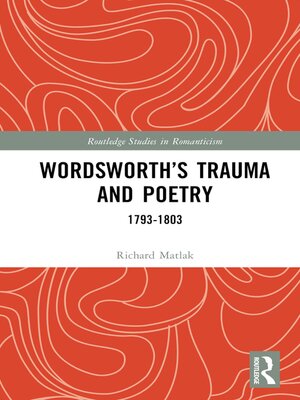Wordsworth's Trauma and Poetry
ebook ∣ 1793–1803 · Routledge Studies in Romanticism
By Richard E. Matlak

Sign up to save your library
With an OverDrive account, you can save your favorite libraries for at-a-glance information about availability. Find out more about OverDrive accounts.
Find this title in Libby, the library reading app by OverDrive.



Search for a digital library with this title
Title found at these libraries:
| Library Name | Distance |
|---|---|
| Loading... |
Based upon the testimony of Thomas Carlyle, most biographers acknowledge that Wordsworth witnessed the beheading of the journalist Antoine Gorsas in October 1793 during the Reign of Terror. But they go no further. This study reads the Poet's reactions to the Terror in passages from The Prelude as explicitly about his twenty-three-year-old-self witnessing the gory deaths of Gorsas and others, which caused post-traumatic stress disorder and its symptoms, exacerbated by guilt for abandoning his French lover and their child a year earlier. Following a chronological arc from October 1793, when the trauma began, until its conclusion in October 1803, when Wordsworth became a poet-soldier, I examine poetic works from The Borderers (1796), the "Discharged Soldier' (1798), the Two-Part Prelude (1799), Home at Grasmere (1800), and the Liberty sonnets (1803), to follow the Poet working through anxiety, fear, and remorse to a resolution.







